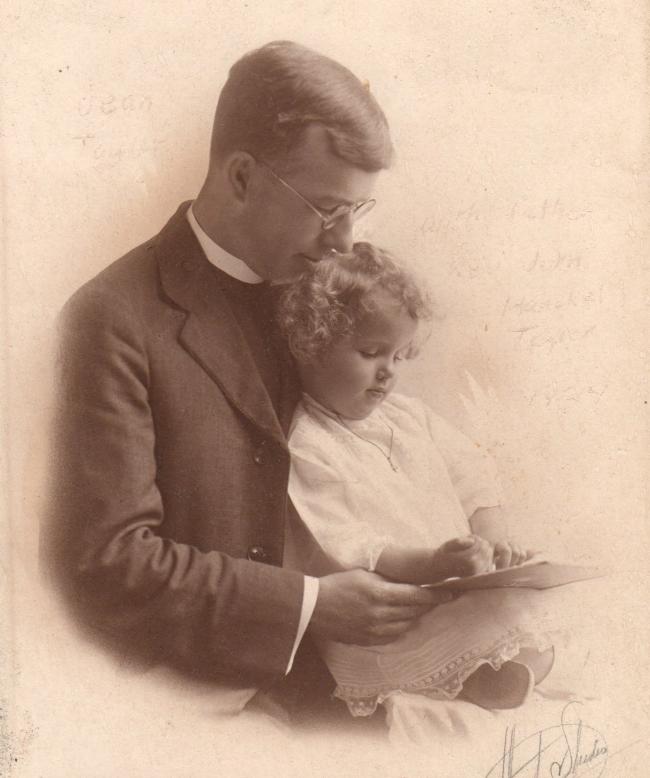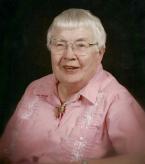Jean Hueston learned how to always bounce back
SLIDESHOW: CLICK ON THE PHOTO TO PLAY SLIDESHOW. Jean Hueston as a little girl with her beloved father.
Mon, 07/19/2010
The first thing I spotted after sitting down was a fawn-colored teddy bear on the bed.
"That's Rosie Resilient," chirped 90-year-old Jean Hueston. "She's my reminder - no matter what, I've been able to bounce back."
Jean has been a mover-shaker for over 50 years in the Des Moines area, but the roots that anchored her started out clear across the country in Virginia.
She was born to an Episcopal minister, and her mother became bedridden right after her birth, so her father took her with him on ministry calls.
"With all the bouncing around in a hot car, the milk would turn to butter, and I couldn't get anything out of the nipple," she laughed. "He was a wonderful father."
After her mother recovered, they all moved to Missouri and then on to Chicago in 1928, where her father trained to be a Unitarian minister.
Jean was now school age and was sent to live with her two schoolteacher aunts in South Carolina.
She loved her aunts, but also remembered the racial discrimination.
"A black woman came to the door selling fish and I went to tell my aunts 'a lady is at the door.' After they saw that she was black, they said that 'they (blacks) weren't ladies.'
However, Jean wasn't tainted by prejudice and said of her aunt's black servants, "I enjoyed them more than my friends and I learned more from them than anyone else - they were my friends."
Even Jean's 15-year old cousin made it clear that she felt superior and said of the blacks, "I don't think they feel comfortable doing anything other than serving the whites."
Jean realized, then, that she believed in equality, even though it didn't exist back then. This set her cap for making a difference and changing things.
She said, "I really had to think about it, because my father would always tell me how to think and feel about things. It wasn't until I was 30 that I wondered what I believed in and asked myself, 'Is what I believe really me or is it my father?'"
One thing that she did know, "If the kids, whether black or white, don't have a good family and background or mentors to start them out, then they don't have a chance. I saw so much of that and realized that I could make a difference."
Although she originally wanted to be a minister, she went on to a Massachusetts college, graduated and immediately got a job teaching first and second grade.
In 1941, she married Walter and moved to California. She experienced more prejudice in another way.
"After he graduated, he got hired to come to a job in Seattle, so we moved, but the job didn't last long, because they found out about his political left leanings and he was fired."
Jean went back to teaching at $900 a year until he found a new job - just in the nick of time, because she got pregnant, and back then, a woman couldn't be pregnant and teach school.
In 1954, they moved into the Des Moines area, where she taught for twenty-two more years. This rounded out thirty years of teaching by the time she retired.
However, she said she was glad to retire from teaching. "I could dedicate my time to find the best legislators that would give the best votes for kids," she declared.
So, she spent 1955 to 2008 going door to door - petitioning people to get out and vote.
At this, she patted her wearied legs and said, "I did it as long as I could get up the steps."
And it was long enough that she was not only recognized for her community and political activism.
When I asked her about her greatest accomplishment, she said, "Being resilient," as she pointed to a darling picture of her father reading to her, "That's my favorite picture, up there. I don't think I'd be quite what I am now, if my father hadn't taken me over. I'm glad about that."
I see a lesson here for the men about how much a daddy's love and attention mean to his little girls.



